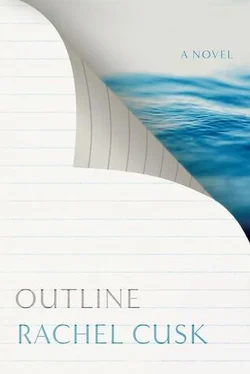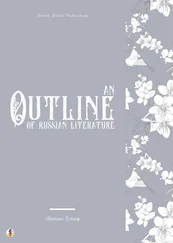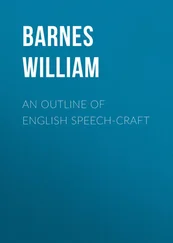‘I had just crossed the square,’ he said, ‘and had turned around, in that moment having had this thought about the police, when what should I see but a young policeman, exactly halfway between myself and the bag, which I could still see sitting on the wall along the far side. He was coming up the path, at the end of which you must turn in one of two directions: right, which would have brought him to me, or left, which would take him straight to the bag. If he turned right, I saw that I would have no choice but to inform him, and to embroil myself in all the paperwork and wasted time that such acts entail. Fortunately for me,’ Theo said, ‘he turned left, and I stood there long enough to see him reach the bag, look around himself for its owner and peer inside at its contents as I had done, and then pick it up and take it with him on his way.’
The group applauded this performance heartily, while Theo continued to smile benignly in their midst. It was interesting to consider, said the longhaired boy — Georgeou, as my diagram now told me — that a story might merely be a series of events we believe ourselves to be involved in, but on which we have absolutely no influence at all. He himself had noticed nothing on his journey here: he habitually did not notice things which did not concern him, for that very reason, that he saw the tendency to fictionalise our own experiences as positively dangerous, because it convinced us that human life had some kind of design and that we were more significant than we actually were. As for him, his father had driven him here: they had had a very interesting conversation on the way about string theory, and then he had got out and come upstairs to this room.
‘It is surely not true,’ the girl sitting next to him said, with an expression of perplexity, ‘that there is no story of life; that one’s own existence doesn’t have a distinct form that has begun and will one day end, that has its own themes and events and cast of characters.’ She herself, on the way here, had passed an open window from which had drifted the sound of someone practising the piano. The building, it so happened, was a music college of the kind she herself had left two years before, abandoning her lifelong hopes of becoming a professional musician; she recognised the piece as the D minor fugue from Bach’s French Suites, a piece she had always loved and that caused her, hearing it so unexpectedly, to feel there on the pavement the most extraordinary sense of loss. It was as though the music had once belonged to her and now no longer did; as though she had been excluded from its beauty, was being forced to see it in the possession of someone else, and to revisit in its entirety her own sadness at her inability, for a number of reasons, to remain in that world. Certainly another person, she said, passing that window and hearing the D minor fugue, would have felt something completely different. In itself, the music coming out of the window means nothing at all, and whatever the feelings that might be attached to it, none of them had caused the music to be played in the first place, or the window to be left open so that the sound of it could be heard by passers-by. And even a person observing these events, she said, from across the road, could not have guessed, simply by seeing and hearing, what the story really was. What they would have seen was a girl walking past, at the same time as hearing some music being played from inside a building.
‘Which in fact’, Georgeou responded, his finger lifted in the air and a wild grin appearing on his face, ‘is all that actually happened!’
The girl — her name, when I looked, was Clio — was perhaps in her late twenties, but she had a childlike appearance, her dark hair drawn straight back into a ponytail and her pale, sallow skin bare of make-up. She wore a sleeveless kind of tunic, which added to her air of simplicity. I could imagine her in the monasticism of a practice room, her fingers flying surprisingly across the black and white keys. She looked at Georgeou with a face entirely passive and still, clearly in the expectation that he would have a great deal more to say.
Thankfully, Georgeou continued, there was an infinite thing called possibility, and an equally useful thing called probability. We had an excellent piece of evidence in terms of the music college, a place the majority of people would understand to be in the business of turning out professional musicians. Most people would have some concept of what a professional musician was, and would understand that the possibility of failure in such a profession was as great as the possibility of success. Hearing the music coming out of the building, therefore, they could envisage the person playing it as one who was running this risk, and whose fate could therefore take one of two basic forms, both imaginable by the average person.
‘In other words,’ Georgeou said, ‘I could deduce your story from the facts alone, and from my own experience of life, which is all that I know for a certainty, most importantly in this case my experience of failure, such as my failure to memorise the constellations of the southern hemisphere, which never ceases to upset me.’ He folded his hands and looked at them with a downcast expression.
I asked Georgeou how old he was, and he replied that he had turned fifteen last week. His father had bought him, as a birthday gift, a telescope, which they had set up on the flat roof of their apartment building and through which he was now able to study the sky, and most particularly the phases of the moon, in which he had a special interest. I said that I was glad he had received such a satisfying present, but that it was perhaps time to listen to what the others had to say. He nodded his head, his face brightening. He just wished to add, he said, that he was familiar with the D minor fugue from the French Suites: his father had played him a recording of it, and personally he had always found it to be quite an optimistic piece of music.
At this, the person sitting next to him began to speak.
‘Music,’ she said, in a languorous and dreamlike manner. ‘Music is a betrayer of secrets; it is more treacherous even than dreams, which at least have the virtue of being private.’
The woman who said this was of a glorious though eccentric appearance, somewhere in her fifties, with a demolished beauty she bore quite regally. The bones of her face were so impressively structured as to verge on the grotesque, an impression she had chosen to accentuate — in a way that struck me as distinctly and intentionally humorous — by surrounding her already enormous blue eyes in oceans of exotic blue and green shadow and then drawing, not carefully, around the lids with an even brighter blue; her sharp cheekbones wore slashes of pink blusher, and her mouth, which was unusually fleshy and pouting, was richly and inaccurately slathered in red lipstick. She wore a great quantity of gold jewellery and a dress, also blue, of gathered chiffon that left her neck and arms exposed, where the skin was very brown and intricately creased. Her name, according to my chart, was Marielle.
‘For example,’ she continued after a long pause, her enormous blue eyes travelling the faces around her, ‘it was when I heard my husband singing “L’amour est un oiseau rebelle” in the shower that I realised he was being unfaithful to me.’ She paused again, closing her fleshy lips together with difficulty over her distinctly large and protuberant front teeth as though to moisten them. ‘He was of course singing the part of Carmen herself,’ she resumed, ‘though I don’t think he realised his mistake, or would even have cared had he known. He has always been lazy about details, since he is a person of extremes, and prefers not to be detained by facts. As far as he was concerned he was simply singing out of sheer joy, so good was it to be him in our apartment on that sunny morning, with his mistress tucked away somewhere on the other side of town while he showered in his stall of travertine and gold, where he even likes to keep a few hardier artworks, as well as a small piece of the Parthenon frieze that is still presumed to be missing and that he uses as a soap dish; with the new high-pressure hot-water system we had just had installed and the towels he had ordered all the way from Saks Fifth Avenue in New York, which enveloped you like a baby in its mother’s arms and made you want to go back to sleep again.
Читать дальше












